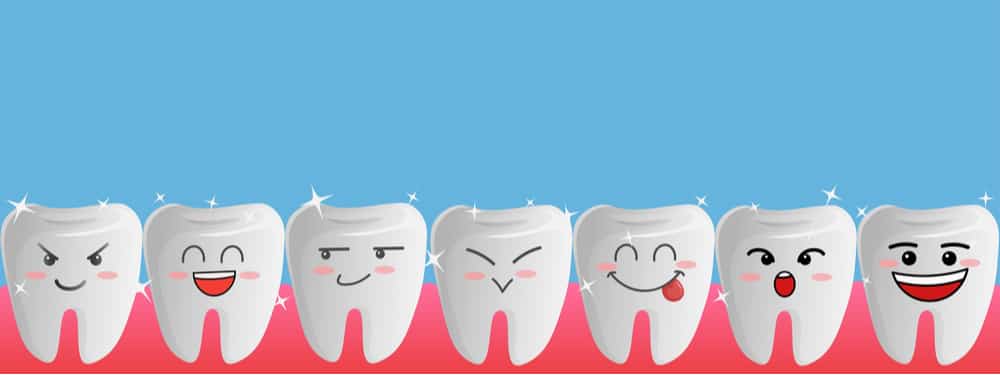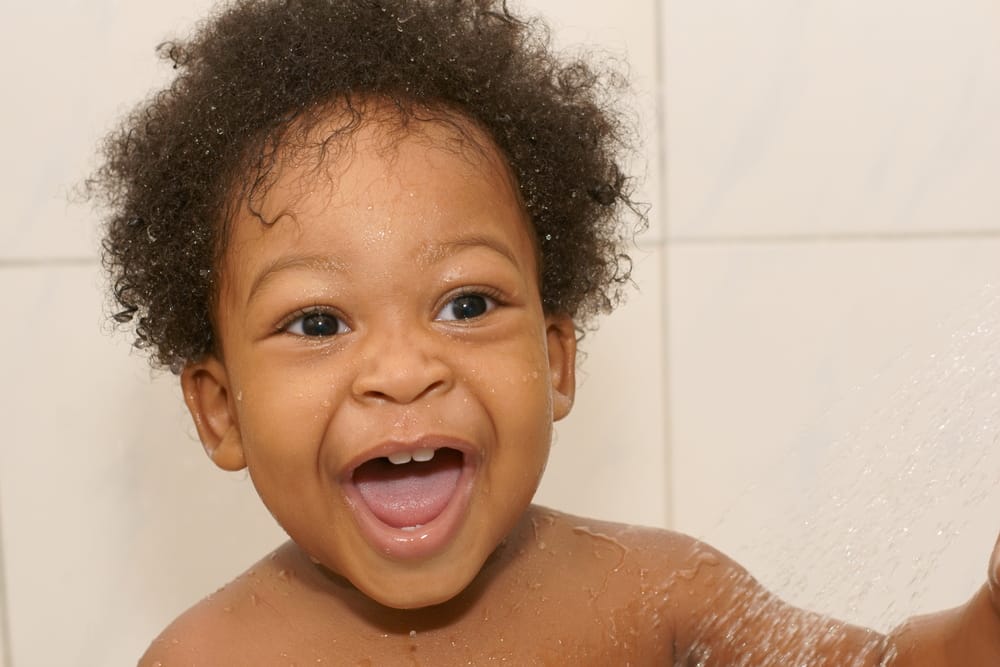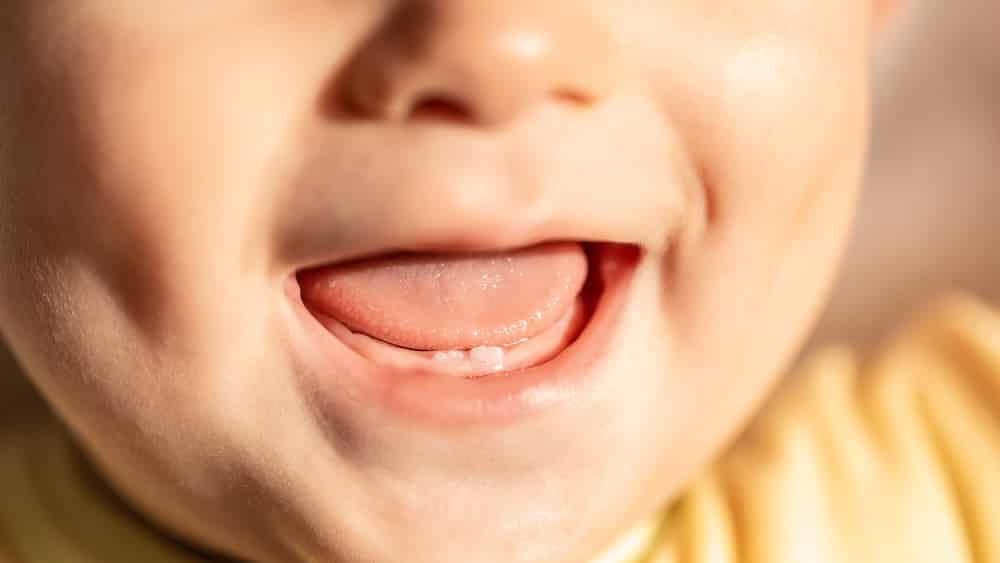Primary dentition is the same as milk teeth or temporary teeth. It erupts in babies and children during the early formative years. However, every child loses his/her primary teeth as development occurs. In fact, many parents may think that the primary dentition may not be important since their child will still lose it.
However, it serves an all-important role in a child’s dental health.
In this post, you’d learn all you need to know about primary dentition; what it is, the functions, primary dentition care, and common disorders.
Don’t stop reading.

What are the functions of primary teeth?
Developing primary teeth is a unique journey for a child. This is because acquiring them comes with pain, tender gums, and some level of discomfort. After a child has gone through these and more, it is really in place for you to watch and take care of the teeth when they finally arrive.
You can start by understanding the signs of teething in your little one.
Before we talk about how to care for primary dentition, let’s consider what they do. What functions do the primary teeth perform that make it very important to care for them?
These functions include:
Phonation
This deals with the development and production of sound (speech). Phonation is a core aspect of good cognitive, emotional and social development. Once the primary teeth are in place, they help your baby pronounce syllables. In addition, primary teeth prevent the tongue from straying when forming words.
Development of Good Oral Health
Decayed primary teeth can promote the start of childhood tooth disease.
This condition can lead to invasion of bacteria in the mouth, erosion of gums, ligaments, and eventually, the bones. If left untreated, it can result in a complete drop out of the teeth. This eventually causes spacing problems for the permanent teeth that will later emerge.
You should encourage your child to learn and practice good oral health. Furthermore, we’d advise that you are available to provide guidance and supervision.

Feeding
The development of primary teeth also plays a crucial role in feeding. As your little one moves through the various baby food stages, it helps to remember that his/her teeth largely influence what he/she can eat.
In fact, studies show that decayed or malformed primary teeth largely affect a child’s eating habits. Furthermore, children with poorly developed teeth are at risk of dietary deficiencies, malnourishment, and ultimately, becoming underweight.
The teeth represent a very important part of feeding because they are responsible for chewing, which facilitates swallowing and digestion. Of course, diseased or malformed teeth reduce the ability to chew and break down food. In addition, a toothache may cause a child to lose all interest in food.
Proper Alignment
Think of the primary teeth as a sort of forerunner for adult teeth. In addition to all the functions mentioned earlier, primary dentition also facilitates the proper alignment of adult teeth and promotes the development of the jaw.
When missing primary teeth are left untreated, the remaining teeth can lose their alignment and fill spaces not originally meant for them.
As a result, pediatric dentists recommend space-maintaining devices in cases of missing teeth.

Positive self-esteem
Do you think self-esteem is only a big people problem?
If your answer is yes, you may need to reconsider.
The truth is, children also need to build positive self-esteem. It is even more important in children because whatever mentality they cultivate from a young age may stick with them throughout adulthood. Ugly teeth can be easily picked on by friends and peers which may contribute to a negative self-image.
Great Smiles
Yes, the teeth are a crucial component of a great smile.

There’s no great smile without a good set of teeth. Taking care of primary teeth helps to make social interactions more pleasant, helps to reduce the risk of bad breath, promotes confident smiles and good social interactions.
Caring for the Primary Dentition
In caring for your baby’s teeth, you can use a soft washcloth to gently clean the gum. This is usually done before the primary teeth erupt. Once the primary teeth erupt, you can start tooth brushing but you will need a very soft brush with little pediatric toothpaste.
Tooth brushing should be done at least twice a day.
The American Association of Pediatric Dentistry (AAPD) recommends that you should assist your child in tooth brushing at least twice daily until he/she is at least 8 years old.
It has also been proven that children tend to learn faster when they see things than when they are told. This implies that your lesson on tooth brushing will stick fast to your child when you demonstrate to him or her how to brush.

To further prevent dental caries, fluoride-rich toothpaste should be used.
You can start with a small smear or a rice grain size. This can be increased gradually from ages 3 to 6. At this age, sodium fluoride mouth rinse can be used on a daily basis to decrease the risk of dental caries. However, you should be careful not to introduce a fluoride-rich mouth rinse for children younger than 6 years. This is to reduce the risk of fluorosis (excess fluoride in the body) if it is repeatedly swallowed.
Disorders of Primary dentition
Disorders associated with primary dentition are usually eruption-related disorders. This can include premature eruption, early eruption, late eruption, or abnormal eruption patterns.
Premature eruption is when immature teeth erupt while they are still in their bud form. This is sometimes a result of infection or trauma to the mouth.
Early eruption relates to the individual tooth. But if many teeth erupt early, it can be a result of an underlying disorder known as hyperthyroidism.
In late eruption, the teeth appear later than expected. You should see a pediatric dentist if you are worried as to why your child is yet to grow a milk tooth.
Premature, early or late large-scale eruption can be due to genetic predisposition or it may be a pointer to some other underlying disorders such as:
- Vitamin A or D deficiency
- Congenital malformations
- Infections
- Traumas
- Metabolic disorders
- Impacted primary tooth
- Infection
- Other systemic disorders
Conclusion
Primary dentition is a sign that your child is growing well, but you need to maintain these teeth properly in order to help your child to keep good oral hygiene even in adulthood and prevent losing teeth. Read about tooth eruption and how to brush baby’s teeth.
Also, you need to be on the lookout for any dental disorder that your child may be predisposed to. This can be prevented or caught early by regular visits to your child’s pediatric dentist.
References
Jyothsna Vittoba Setty and Ila Srinivasan (2016). Knowledge and Awareness of Primary Teeth and Their Importance among Parents in Bengaluru City, India. Int J Clin Pediatr Dent. 2016 Jan-Mar; 9(1): 56–61.

